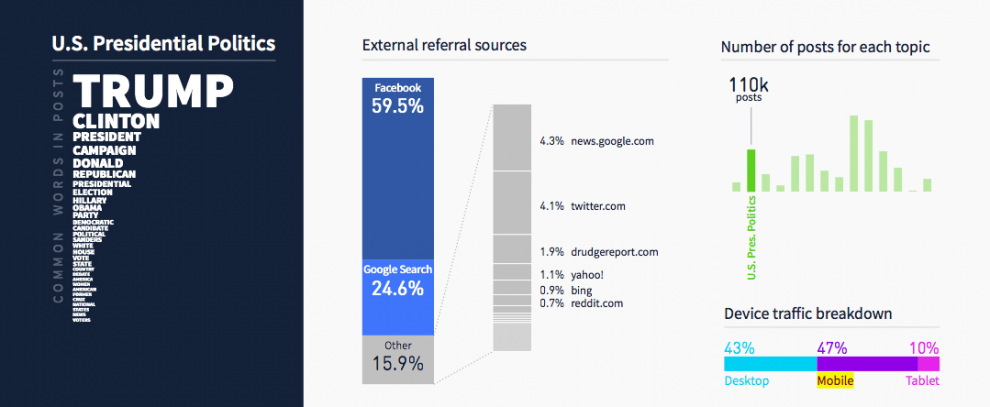When you’re publishing to Facebook, or tweaking a headline to align with some carefully honed SEO strategy, how closely do you take note of story topic?
New research from Parse.ly suggests that news organizations trying to make the most of Facebook referrals and Google search traffic need to be extra discerning about story topic, as some — like lifestyle or entertainment — see the majority of their referral traffic coming from Facebook, while others — like tech, sports, and business — see the lion’s share of their traffic coming through Google search. (The findings were based on Parse.ly’s analysis of more than 10 million articles published last year by outlets within its network.)
Lifestyle articles, for instance, get more than 87 percent of their external traffic from Facebook, and just 7 percent from Google search. (63 percent of that traffic also came from a mobile device.) On the extremely Google-reliant end are job postings, which get 84 percent of their traffic through Google search versus 12 percent from Facebook. (There were significantly fewer job-related posts among the 10 million stories Parse.ly analyzed, 2,700 posts, compared to 110,000 lifestyle articles or 210,000 sports articles.)

Across the millions of articles analyzed, Facebook referrals accounted for 39 percent of external traffic, Google 35 percent. Other sources, such as Bing or Pinterest or Reddit, often made up less than a percentage point of referral traffic.
The report also breaks down what words often appear in stories from each topic (word cloud alert). Here, for instance, is U.S. presidential politics (hello, Drudge Report):

Here’s sports (where Twitter, at 10 percent, is actually a not insignificant source of referral traffic):

You can read the full report here.